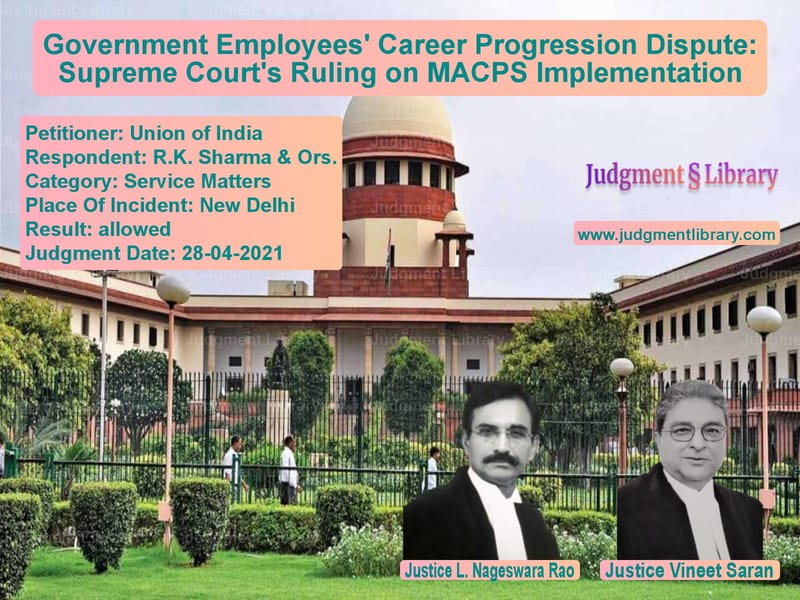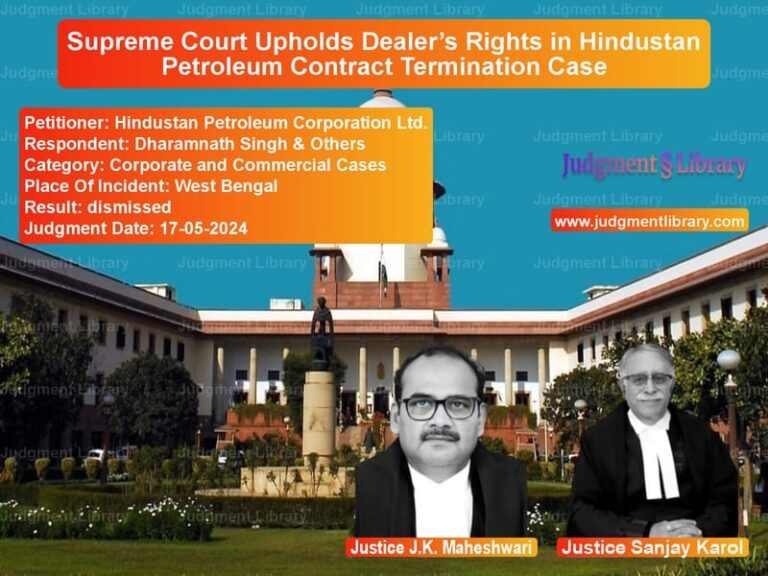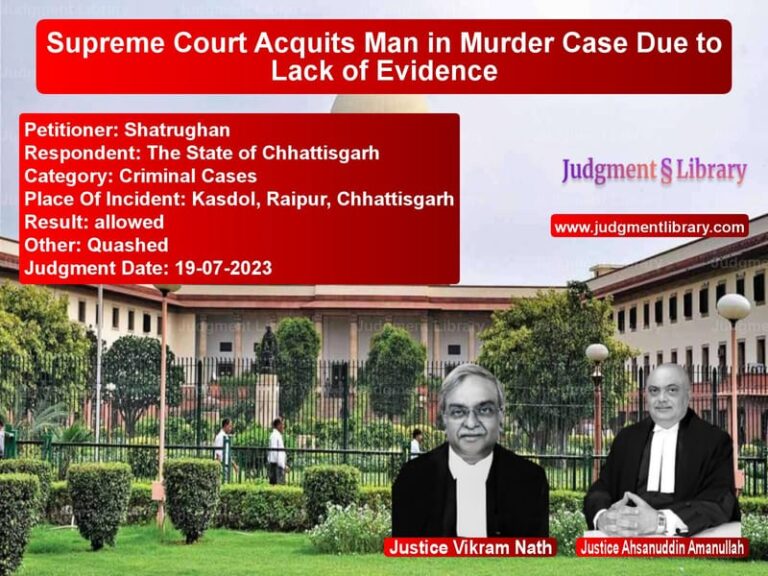Government Employees’ Career Progression Dispute: Supreme Court’s Ruling on MACPS Implementation
The Supreme Court of India addressed a crucial issue concerning government employees’ career progression, specifically regarding the Modified Assured Career Progression Scheme (MACPS). The primary question before the Court was whether the Government of India was justified in implementing MACPS from September 1, 2008, instead of January 1, 2006. The case involved multiple appeals, with the lead appeal being Union of India v. R.K. Sharma & Ors.
Background of the Case
The Respondent, R.K. Sharma, was appointed as Deputy Director in the Bureau of Industrial Costs and Prices in the Ministry of Industry, later merged with the Tariff Commission. He was promoted as Director in 1994. The government had previously implemented the Assured Career Progression Scheme (ACPS) based on the 5th Central Pay Commission’s recommendations, effective from January 1, 1996. The scheme allowed financial upgradation to employees facing stagnation due to limited promotion opportunities.
The 6th Central Pay Commission, in its report submitted in March 2008, introduced MACPS to replace ACPS. While the revised pay structure and dearness allowance were implemented from January 1, 2006, other revised allowances, including MACPS, were implemented from September 1, 2008. The core dispute in this case revolved around whether the MACPS should have been implemented from January 1, 2006, like the pay revisions, instead of the later date.
Petitioner’s Arguments (Union of India)
- The Additional Solicitor General argued that the MACPS is an incentive scheme, not a part of the pay structure, unlike ACPS. Therefore, it should not have retrospective effect.
- She relied on the Supreme Court judgment in Union of India & Ors. v. M.V. Mohanan Nair (2020), which classified MACPS as an incentive and held that it should not be applied retroactively.
- The government’s resolution on August 29, 2008, made it clear that revised pay scales were effective from January 1, 2006, but MACPS and other allowances were only effective from September 1, 2008.
- If MACPS were to be implemented retrospectively, it would require large-scale recovery of excess payments from retired employees, causing financial distress.
Respondent’s Arguments (R.K. Sharma & Others)
- The respondents contended that the benefit of MACPS should have been extended from January 1, 2006, in line with the pay scale revisions.
- They relied on the Supreme Court judgment in Union of India & Ors. v. Balbir Singh Turn & Anr. (2018), where it was held that ACPS benefits were part of the pay structure and should be implemented retrospectively.
- The respondents argued that denying MACPS benefits from January 1, 2006, was discriminatory and unfair.
Supreme Court’s Analysis and Judgment
The Court examined the precedents in Balbir Singh Turn and M.V. Mohanan Nair. It observed that while the former held ACPS to be part of the pay structure, the latter classified MACPS as an incentive scheme, not forming part of an employee’s basic pay.
Read also: https://judgmentlibrary.com/supreme-court-denies-compassionate-appointment-after-10-year-delay/
The Court noted that the government had consistently maintained a distinction between revised pay scales and incentives. Since the resolution dated August 29, 2008, clearly mentioned that MACPS would be effective from September 1, 2008, there was no basis for the High Court’s direction to apply it from January 1, 2006.
The Court concluded:
- MACPS is not part of an employee’s pay structure but an incentive to address stagnation.
- Its implementation date was a policy decision and could not be challenged.
- Granting MACPS benefits from January 1, 2006, would lead to widespread financial repercussions, including recovery of excess payments.
Accordingly, the Supreme Court set aside the High Court’s judgment and ruled in favor of the Government of India.
Impact of the Judgment
This ruling clarified that MACPS, unlike pay structure revisions, is not entitled to retrospective effect. It reaffirmed that financial incentives are subject to the government’s policy decisions rather than automatic implementation with pay scale changes.
For government employees, this decision has significant implications, particularly for those seeking career progression benefits. It underscores the importance of understanding the distinction between structural pay revisions and promotional incentives.
Petitioner Name: Union of India.Respondent Name: R.K. Sharma & Ors..Judgment By: Justice L. Nageswara Rao, Justice Vineet Saran.Place Of Incident: New Delhi.Judgment Date: 28-04-2021.
Don’t miss out on the full details! Download the complete judgment in PDF format below and gain valuable insights instantly!
Download Judgment: union-of-india-vs-r.k.-sharma-&-ors.-supreme-court-of-india-judgment-dated-28-04-2021.pdf
Directly Download Judgment: Directly download this Judgment
See all petitions in Promotion Cases
See all petitions in Pension and Gratuity
See all petitions in Employment Disputes
See all petitions in Judgment by L. Nageswara Rao
See all petitions in Judgment by Vineet Saran
See all petitions in allowed
See all petitions in supreme court of India judgments April 2021
See all petitions in 2021 judgments
See all posts in Service Matters Category
See all allowed petitions in Service Matters Category
See all Dismissed petitions in Service Matters Category
See all partially allowed petitions in Service Matters Category







